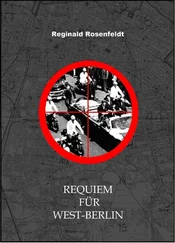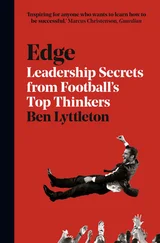Isaiah Berlin - Russian Thinkers
Здесь есть возможность читать онлайн «Isaiah Berlin - Russian Thinkers» весь текст электронной книги совершенно бесплатно (целиком полную версию без сокращений). В некоторых случаях можно слушать аудио, скачать через торрент в формате fb2 и присутствует краткое содержание. Год выпуска: 0101, Жанр: Старинная литература, на русском языке. Описание произведения, (предисловие) а так же отзывы посетителей доступны на портале библиотеки ЛибКат.
- Название:Russian Thinkers
- Автор:
- Жанр:
- Год:0101
- ISBN:нет данных
- Рейтинг книги:3 / 5. Голосов: 1
-
Избранное:Добавить в избранное
- Отзывы:
-
Ваша оценка:
- 60
- 1
- 2
- 3
- 4
- 5
Russian Thinkers: краткое содержание, описание и аннотация
Предлагаем к чтению аннотацию, описание, краткое содержание или предисловие (зависит от того, что написал сам автор книги «Russian Thinkers»). Если вы не нашли необходимую информацию о книге — напишите в комментариях, мы постараемся отыскать её.
Russian Thinkers — читать онлайн бесплатно полную книгу (весь текст) целиком
Ниже представлен текст книги, разбитый по страницам. Система сохранения места последней прочитанной страницы, позволяет с удобством читать онлайн бесплатно книгу «Russian Thinkers», без необходимости каждый раз заново искать на чём Вы остановились. Поставьте закладку, и сможете в любой момент перейти на страницу, на которой закончили чтение.
Интервал:
Закладка:
revolutionary aims, dangerous Utopianism. Yet he felt that something
new was rising-a vast social mutation of some kind. He declared that
he felt it everywhere. He was repelled and at the same time fascinated
by it. A new and formidable type of adversary of the regime-and of
much that he and his generation of liberals believed in-was coming
into e�istence. Turgenev's curiosity was always stronger than his fears:
he wanted, above everything, to understand the new Jacobins. These
men were crude, fanatical, hostile, insulting, but they were undemoralised, self-confident, and, in some narrow but genuine sense, rational and disinterested. He could not bear to tum his back upon
them. They seemed to him a new, clear-eyed generation, undeluded
by the old romantic myths; above all they were the young, the future
of his country lay in their hands; he did not wish to be cut off from
anything that seemed to him alive, passionate, and disturbing. After
all, the evils that they wished to fight were evils; their enemies were,
to some degree, his enemies too; these young men were wrongheaded, barbarous, contemptuous ofliberals like himself, but they were fighters and martyrs in the battle against despotism. He was intrigued,
horrified and dazzled by them. During the whole of the rest of his
life he was obsessed by a desire to explain them to himself, and perhaps
himself to them.
1 1
Young Man to Middle-Aged Man: 'You had content
but no force.' Middle-Aged Man to Young Man: 'And
you have force but no content.'
From a contemporary conversationl
This is the topic pf Turgenev's most famous, and politically most
interesting, novel Fathtrs and Childrm. It was an attempt to give
Aesh and substance to his image of the new men, whose mysterious,
implacable presence, he declared, he felt about him everywhere, and
who inspired in him feelings that he found difficult to analyse. 'There
1 The original epigraph to F athrs 1111d Childrtll, which Turgenev later
discarded. See A. Mazon, Mallf�J(rits pllrisit11s d'/rJafl TrmrguiMrJ (Paris,
1930), PP· 6+-S·


FATHERS AND CHILDREN
was', he wrote many years later to a friend, '-please don't laugh-some
sort of fatum, something stronger than the author himself, something
independent of him. I know one thing: I started with no preconceived
idea, no "tendency"; I wrote naively, as if myself astonished at what
was emerging.'1 He said that the central figure of the novel, Bazarov,
was mainly modelled on a Russian doctor whom he met in a train in
Russia. But Bazarov has some of the characteristics of Belinsky too.
Like him, he is the son of a poor army doctor, and he possesses some
of Belinsky's brusqueness, his directness, his intolerance, his liability
to explode at any sign of hypocrisy, of solemnity, of pompous conservative, or evasive liberal, cant. And there is, despite Turgenev's denials, something of the ferocious, militant, anti-aestheticism of
Dobrolyubov too. The central topic of the novel is the confrontation
of the old and young, of liberals and radicals, traditional civilisation
and the new, hanh positivism which has no use for anything except
what is needed by a rational man. Bazarov, a young medical researcher,
is invited by his fellow student and disciple, Arkady Kinanov, to stay
at his father's house in the country. Nikolay Kinanov, the father, is a
gentle, kindly, modest country gentleman, who adores poetry and
nature, and greets his son's brilliant friend with touching courtesy.
Also in the house is Nikolay Kinanov's brother, Pavel, a retired army
officer, a carefully dressed, vain, pompous, old-fashioned dandy, who
had once been a minor lion in the solons of the capital, and is now
living out his life in elegant and irritated boredom. Bazarov scents
an enemy, and takes deliberate pleasure in describing himself and his
allies as 'nihilists', by which he means no more than that he, and those
who think like him, reject everything that cannot be established by
the rational methods of natural science. Truth alone matten: what
cannot be established by observation and experiment is useless or
harmful ballast-'romantic rubbish'-which an intelligent man will
ruthlessly eliminate. In this heapofirrational nonsense Bazarov includes
all that is impalpable, that cannot be reduced to quantitative measurement-literature and philosophy, the beauty of art and the beauty of nature, tradition and authority, religion and intuition, the uncriticised
assumptions of conservatives and liberals, of populists and socialists, of
landownen and serfs. He believes in strength, will-power, energy,
utility, work, in ruthless criticism of all that exists. He wishes to tear
off masks, blow up all revered principles and norms. Only irrefutable
t From a letter to M. E. Saltykov-Shchedrin, I S January I 876.

R U S S IAN THINKERS
facts, only useful knowledge, matter. He clashes almost immediatdy
with the touchy, conventional Pavel Kirsanov: 'At present', he tells
him, 'the most useful thing is to deny. So we deny.' 'Everything�'
asks Pavel Kirsanov. 'Everything.' 'What� Not only art, poetry . . . but
even . . . too horrible to utter . . .' 'Everything.' 'So you destroy every-
thing . . . but surely one must build, too?' 'That's not our business • . .
First one must clear the ground.'
The fiery revolutionary agitator Bakunin, who had just then
esaped from Siberia to London, was saying something of this kind :
the entire rotten structure, the corrupt old world, must be razed to the
ground, before something new can be built upon it; what this is to be
is not for us to say; we are revolutionaries, our business is to demolish.
The new men, purified from the infection of the world of idlers and
exploiters, and its bogus values-these men will know what to do. The
French anarchist Georges Sorel once quoted Marx as saying 'Anyone
who makes plans for after the revolution is a reactionary.'1
This went beyond the position of Turgenev's radical critics of the
Contemporary: they did have a programme of sorts: they were democratic populists. But faith in the people seems just as irrational to Bazarov as the rest of the 'romantic rubbish'. 'Our peasants', he declares, 'are prepared to rob themselves in order to drink themselves blind at the inn.' A man's first duty is to develop his own powers, to be
strong and rational, to create a society in which other rational men
can breathe and live and learn. His mild disciple Arkady suggests to
him that it would be ideal if all peasants lived in a pleasant whitewashed hut, like the head man of their village. 'I have conceived a loathing for this . . . peasant,' Bazarov says, 'I have to work the skin
off my hands for him, and he won't so much as thank me for it;
anyway, what do I need his thanks for? He'll go on living in his
whitewashed hut, while weeds grow out of me . . . ' Arkady is shocked
by such talk; but it is the voice of the new, hard-boiled, unashamed
materialistic egoism. Nevertheless Bazarov is at his ease with peasants;
they are not self-conscious with him even if they think him an odd
Читать дальшеИнтервал:
Закладка:
Похожие книги на «Russian Thinkers»
Представляем Вашему вниманию похожие книги на «Russian Thinkers» списком для выбора. Мы отобрали схожую по названию и смыслу литературу в надежде предоставить читателям больше вариантов отыскать новые, интересные, ещё непрочитанные произведения.
Обсуждение, отзывы о книге «Russian Thinkers» и просто собственные мнения читателей. Оставьте ваши комментарии, напишите, что Вы думаете о произведении, его смысле или главных героях. Укажите что конкретно понравилось, а что нет, и почему Вы так считаете.










